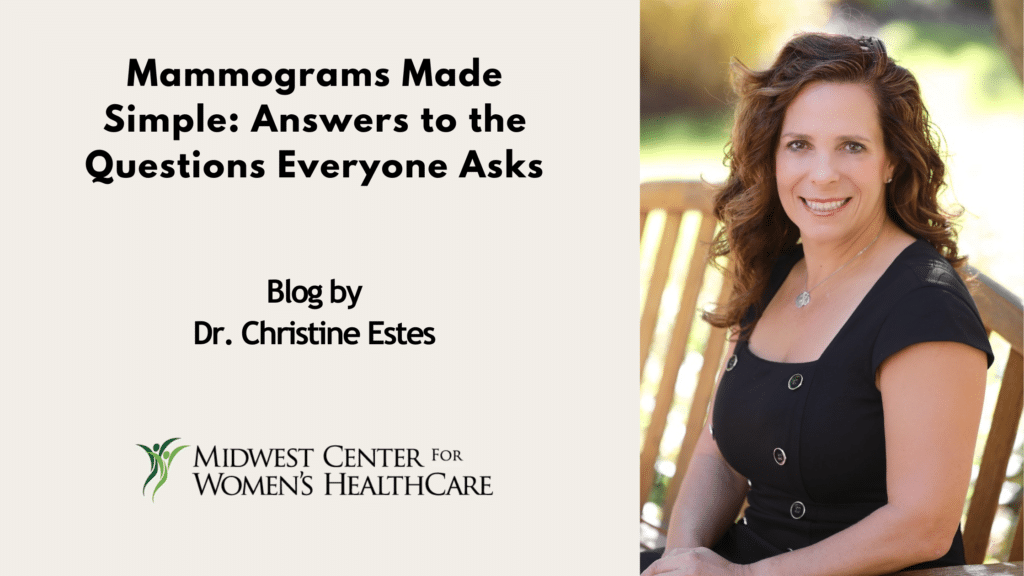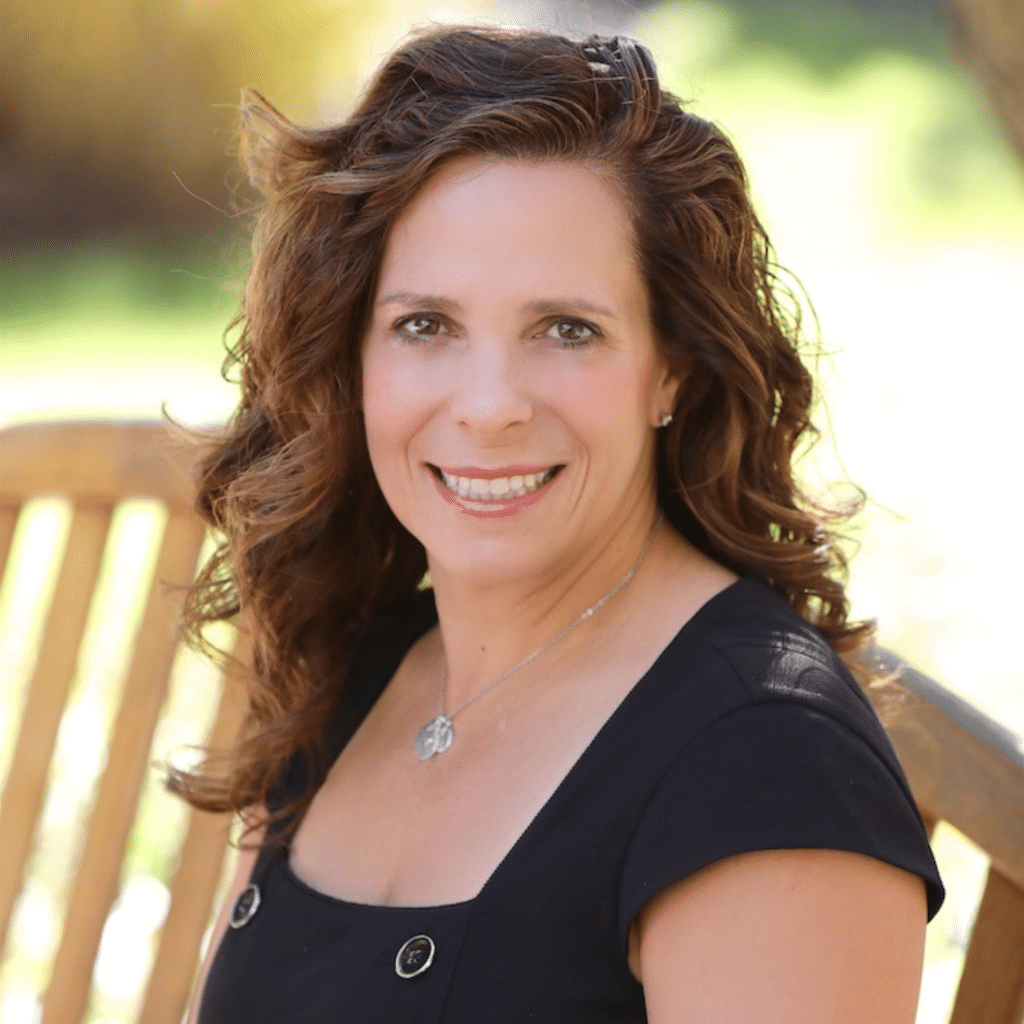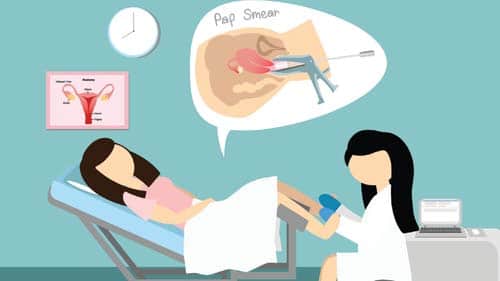Breast health is an essential aspect of women's healthcare, and as part of a comprehensive approach, mammography plays a key role in early detection of breast cancer. As an OB/GYN patient, understanding the importance of early detection of breast cancer, when and why mammography is recommended, the role of breast self-exams, and the use of breast ultrasound can help you make informed decisions about your health. In this blog, we will explore these topics based on the latest guidelines from the American College of Obstetricians and Gynecologists (ACOG).

The Importance of Early Detection in Breast Cancer
Early detection of breast cancer plays a crucial role in improving survival rates and treatment outcomes. Here are some key facts about why early detection is so important:
- Improved Survival Rates: The earlier breast cancer is detected, the higher the likelihood of successful treatment. According to the American Cancer Society, the 5-year survival rate for breast cancer is 99% when the cancer is localized (confined to the breast). However, this rate drops significantly if cancer has spread to other parts of the body.
- Smaller Tumor Size: Early detection allows for the discovery of smaller tumors, which are generally easier to treat and less likely to have spread to lymph nodes or other organs.
- Less Aggressive Treatment: Early-stage breast cancers often require less invasive treatments, such as lumpectomies or targeted therapies, compared to more aggressive treatments for later-stage cancers, like mastectomies or chemotherapy.
- Increased Treatment Options: When breast cancer is detected early, more treatment options may be available. These could include less aggressive surgeries, radiation, or hormone therapy, all of which are more effective when cancer is detected before it spreads.
- 5. Reduced Mortality: Studies have shown that early detection, especially with regular screening, significantly reduces the risk of dying from breast cancer. Mammography screening can reduce breast cancer mortality by about 15-20% in women ages 40-74, according to the American Cancer Society.
When is Mammography Recommended?
Mammography is a powerful tool in the detection of breast cancer, and ACOG provides clear guidelines on when it should be incorporated into routine care.
- For average-risk women: According to ACOG, women who are at average risk for breast cancer should begin screening mammograms at age 40. Mammograms should be performed annually or biennially depending on the woman’s personal preferences and her doctor’s recommendations. The latest ACOG guidelines recommend that women start screening at 40, rather than 50, as early detection can significantly improve treatment outcomes.
- For higher-risk women: Women with a higher risk of breast cancer (such as those with a family history of breast cancer or certain genetic mutations like BRCA1 or BRCA2) may need to start screening earlier or undergo additional imaging, such as breast MRI. These patients should consult their OB/GYN to determine the best approach for their individual risk profile.
- When to stop screening: ACOG suggests that screening mammograms should continue through age 74 for women in good health and with a life expectancy of 10 years or more. For women aged 75 and older, the decision to continue mammography should be made on an individual basis, considering the patient’s overall health, preferences, and life expectancy.
When is a Breast Ultrasound Needed?
A breast ultrasound is another diagnostic tool that is often used in conjunction with mammography to further evaluate breast tissue. It’s not a substitute for mammography, but it can be helpful in certain situations.
- To evaluate a breast lump: If a woman has a palpable lump or abnormal findings during a physical examination or mammogram, a breast ultrasound may be performed to further characterize the lump (whether it is solid or cystic) and provide more detailed images. This can help determine if the lump is benign or requires additional testing.
- For dense breast tissue: Women with dense breast tissue may benefit from a breast ultrasound in addition to their mammogram. Dense breast tissue can make it harder to detect tumors on a standard mammogram, so ultrasound can provide more clarity and help catch abnormalities that might be missed.
- To guide biopsy or aspiration: If a suspicious area is identified during a mammogram or ultrasound, a breast ultrasound can guide a biopsy needle to the right location for tissue sampling.
- Screening for higher-risk women: Women with a higher risk of breast cancer, such as those with a family history or genetic mutations, may also undergo breast ultrasound as part of their overall screening protocol, depending on their specific circumstances.
Are Breast Self-Exams Recommended?
The practice of breast self-exams (BSE) has been a topic of discussion in the medical community for many years. However, ACOG’s position on this matter has evolved.
- ACOG’s recommendation on breast self-exams: ACOG no longer routinely recommends breast self-exams as a standard screening tool for breast cancer. Research has shown that BSE does not significantly reduce breast cancer mortality and may lead to unnecessary anxiety, biopsies, and additional testing. While BSE is no longer considered a mandatory practice, ACOG encourages women to be familiar with the normal look and feel of their breasts so they can notice any changes.
- What to do instead: While BSE isn’t recommended as a primary screening tool, women should still engage in open communication with their healthcare providers if they notice any new or unusual changes in their breasts, such as lumps, skin changes, or nipple discharge. This will help ensure timely evaluation and potential diagnostic imaging.
Common Questions about Mammograms (That Everyone Asks!)
If you’re heading in for your first mammogram—or even if it’s just been a while—it’s totally normal to have questions. Here’s some helpful info to help you know what to expect during your mammogram so you can walk into your appointment with confidence.
“Are mammograms painful?”
You’re not alone in asking this! The thought of breast compression during a mammogram can make anyone a little uneasy. While some people do feel some pressure or discomfort, it’s usually very quick—just a few seconds for each image. That brief pressure is what helps create clear, high-quality X-rays, which are super important for spotting any issues early. If something feels too uncomfortable, don’t hesitate to speak up. Our mammography technologists are experts at helping make the experience as comfortable as possible, and they can often make small adjustments without affecting the quality of the images.
“How long does a mammogram take?”
Great news—mammograms are pretty quick! The whole appointment usually takes about 20 to 30 minutes, and the actual imaging part lasts around 10 minutes. It’s a small investment of time that plays a big role in protecting your health.
“What should I wear to a mammogram?”
Keep it simple: wear a two-piece outfit, since you’ll need to undress from the waist up. Also, skip the deodorant, lotion, or perfume that day—some of those products can show up on the X-rays and make things a little tricky to read.
“When should I start getting mammograms?”
For most women with average risk, doctors recommend starting annual mammograms at age 40. But if you have a family history of breast cancer or other risk factors, your doctor may suggest starting earlier. It’s always best to talk with your provider about what’s right for you.
“What information do I need to schedule a mammogram appointment?”
- Full name and date of birth
- Contact information
- Insurance card or details (if applicable)
- Any previous mammogram dates and locations
- A few preferred dates and times for your appointment
Need Help or Have Questions?
We’re here to support you every step of the way. If you’re unsure what type of mammogram you need or where to schedule, please contact our office.
Key Takeaways About Breast Health
As a woman, staying proactive about your breast health is essential. Mammography is a cornerstone of early breast cancer detection, and it is crucial to follow the recommended screening guidelines, especially if you are 40 years or older. Breast self-exams are no longer recommended as a routine screening tool but remain important for becoming familiar with the normal appearance and feel of your breasts. If you notice any changes, talk to your OB/GYN promptly. Additionally, breast ultrasound can play a vital role in assessing abnormalities, especially in women with dense breast tissue or those with other risk factors.
Your OB/GYN is your partner in managing your breast health. Be sure to consult with them regularly and share any concerns you have. Together, you can create a personalized plan for screening, diagnosis, and ongoing care that aligns with your needs.
Stay informed, stay proactive, and take charge of your breast health! Remember:
- Early detection saves lives: Mammograms help find breast cancer early, when it’s easier to treat and survival rates are higher.
- Start at age 40: Women should begin regular mammograms at age 40, or earlier if they’re at higher risk.
- Know your body: While breast self-exams aren’t required, being familiar with your breasts can help you notice changes and discuss them with your doctor.
- Breast ultrasound has a role: Ultrasound may be needed if you have dense breast tissue or if something unusual is found during a mammogram.
- Stay informed: Regular screenings, along with staying up to date on guidelines, can help catch breast cancer early and improve outcomes.
Whether it’s your first time or your tenth, having a mammogram is an important step in taking care of your health. The more you know, the easier it is to feel calm, confident, and prepared. For more information about mammography guidelines or any questions regarding your health, don’t hesitate to contact your OB/GYN at Midwest Center for Women’s HealthCare. We are always available to help.
Mammography & Breast Ultrasounds Appointments
We are pleased to offer 3D mammography and breast ultrasound services in Park Ridge, Skokie and South Elgin, Illinois.
To Schedule Now, Please Call Us or Request an Appointment here.
- Park Ridge Breast Center (847-825-8108) offers mammography and breast ultrasounds.
- Skokie Breast Center (847-901-3355) offers mammography.
- South Elgin Breast Center (847-741-7990) offers mammography and breast ultrasounds.
About The Author
CHRISTINE ESTES, M.D., F.A.C.O.G.
Board-Certified OB-GYN | Expert in Robotic Gynecologic Surgery
Christine Estes, MD, FACOG is a trusted and experienced OB-GYN proudly caring for women in our Elgin and South Elgin community for over 20 years. She has a busy obstetric practice where she offers comprehensive, personalized women’s healthcare, focusing on building strong, supportive relationships with her patients. From annual wellness exams, birth control counseling, and obstetric care to menopause management and advanced gynecologic surgery, Dr. Estes is dedicated to helping women feel confident, informed, and cared for at every stage of life.
Dr. Estes received her medical degree from Georgetown University School of Medicine in Washington, D.C. after completing her undergraduate studies at the University of Notre Dame. She conducted her residency in Obstetrics and Gynecology at St. Luke’s Medical Center in Chicago, where she gained extensive training in women’s health and surgical care.
As a board-certified OB-GYN and a Fellow of the American College of Obstetricians and Gynecologists (F.A.C.O.G.), Dr. Estes brings more than two decades of experience and surgical expertise to her patients. She is specially trained and certified in daVinci Robotic Surgery, offering minimally invasive options for a wide range of gynecologic procedures.
Outside the office, Dr. Estes is a passionate runner and fitness enthusiast. She has completed over 15 marathons and dozens of half marathons with her close-knit group of running friends. She also enjoys traveling, reading, and spending time with her husband and their 24-year-old triplets.
Dr. Christine Estes is currently accepting new patients by calling 847-741-7990.
To learn more about her, visit mcwhc.com/providers/dr-christine-estes-obgyn




